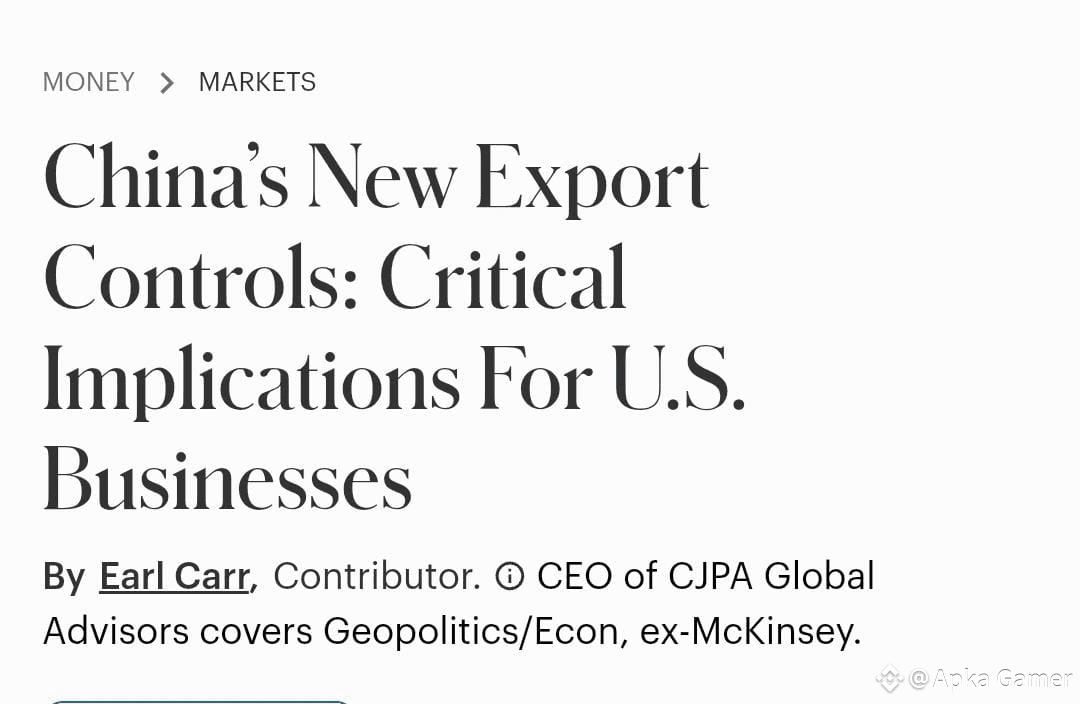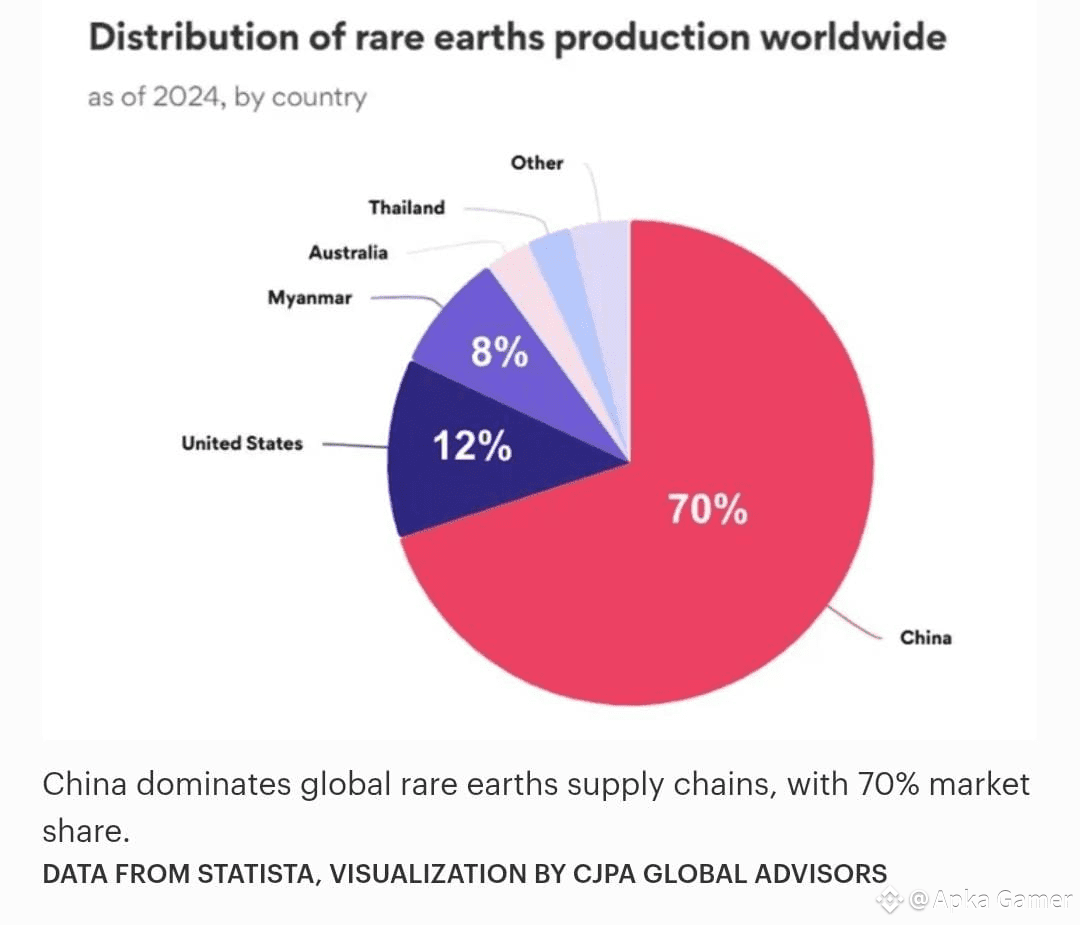
We all know the U.S. recently imposed new tariffs on China — a direct response to Beijing’s fresh restrictions on rare-earth mineral exports. These rare-earths are critical components for AI hardware, semiconductors, and GPUs — and since China dominates global supply, the move shook international markets, even triggering a sharp correction on October 10.
But here’s the interesting part — while traditional tech markets are feeling the squeeze, the decentralized AI ecosystem could actually benefit from this global supply disruption.
How It Could Benefit the Crypto Market

China’s rare-earth export bans are tightening global AI hardware supply, pushing companies to seek decentralized compute and data alternatives.
That’s where AI-focused crypto projects like Render (RENDER) and Bittensor (TAO) come in — they provide GPU rendering and AI training power outside centralized, China-dependent ecosystems.
Fetch.ai (FET) and Ocean Protocol (OCEAN) stand to gain as firms turn to decentralized AI data sharing and automation networks.
NEAR Protocol (NEAR) could also benefit as a platform for AI-powered decentralized apps (dApps), avoiding reliance on restricted tech stacks.
The Bigger Picture
As AI hardware costs rise due to global supply pressures, decentralized AI networks become more attractive. These tokens are directly tied to the AI narrative — and now, the supply chain crisis adds a powerful short-term catalyst.
That said, volatility will be extreme. Only projects with genuine utility and partnerships are likely to sustain long-term gains. But in the short term, these AI-linked coins could see renewed hype and momentum as global AI infrastructure looks beyond China’s control.
#china #TradeWar #RareEarth #US #aicoins